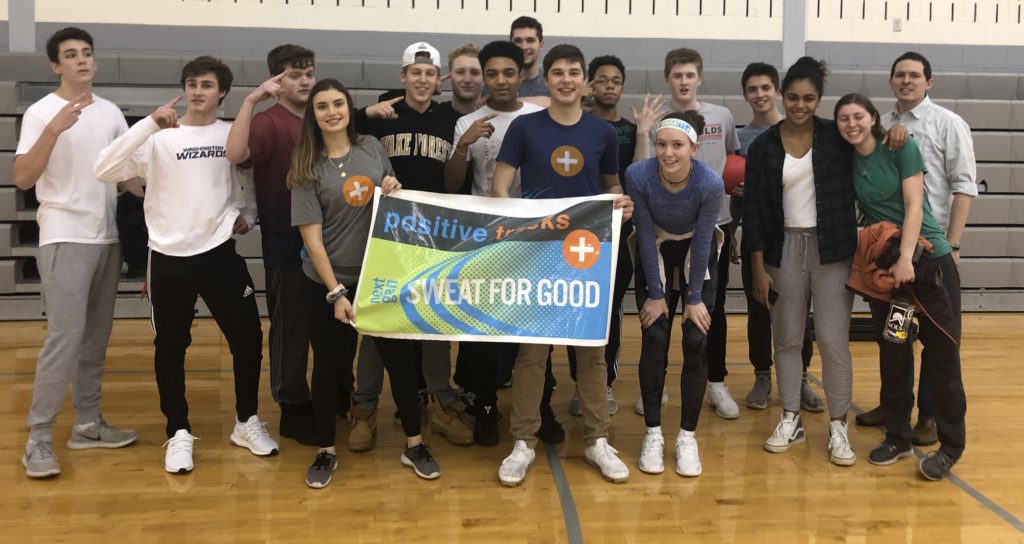When high school seniors Sofia Cabral and Jack Duval first learned about Positive Tracks they were inspired. “Before that it never occurred to me that students could lead their own event at high school,” says Sofia. The two were in an Advanced Spanish class called “Gender and Society” and both were working with other partners on separate final projects for the class.
John, an avid athlete, had been working on the topic of the gender pay gap in sports. Sofia was working on a project about domestic violence. Both had personal connections to their respective topics, and were motivated to share all they had learned about these issues.
That was when Positive Tracks came to their school, and gave examples of the Positive Tracks Challenges kids of all ages had run to raise awareness and funds for causes they care about. A lightbulb went off: Wouldn’t it be cool to run their own event?
The How:
Their school does not allow fundraising, other than for funds going directly to the school, and Sofia and Jack only had a few weeks remaining for their class projects. In order to make the biggest impact possible, they decided to join forces to champion both their causes in one event. Less than two weeks later, they had pulled off the first Positive Tracks Challenge devoted entirely to Public Awareness.
Sofia and John ran across all the obstacles of running their own event: They had to come up with an idea, design an event, make a proposal, and find times to meet with multiple school administrators to get approval. They then had to find a date around middle school recess and high school class schedules when they could book the gym. Then, they had to make the event happen.
The Event:
It looked like a regular kickball game, but at the beginning of each round/inning Jack and Sofia announced two facts related to their causes. For example:
-
A starting WNBA player, with a college degree, makes the same as a custodian at McDonalds. A starting NBA player makes roughly $500,000.
-
Seventy percent of women worldwide will experience some form of domestic violence or assault.
When each team got to home base, if they could correctly recite the fact they got an extra point.
The Impact:
Around 20 students participated, had fun playing a game and were surprised at what they learned.

“That’s not true!” became a familiar reaction, but Jack and Sofia could back up their facts. If they had more time, they would increase their impact by planning a series of events to build a larger following. “The biggest thing would be to increase the scope, by informing more people, so that they could then do the same,” says John.
The Advice:
“I wish we knew about Positive Tracks before!” says Sofia, who has continued talking it up with younger students. “We would love to do another event with them. It was a super positive experience.”
Not surprisingly, their main advice for pulling off a great event is to allow more time. “Plan enough time for setbacks and mistakes so you’re not overstressed and can have fun,” says Sofia. Jack adds the importance of clear messaging: “Be consistent and disciplined in your language at every stage, with proposals and outreach.”
